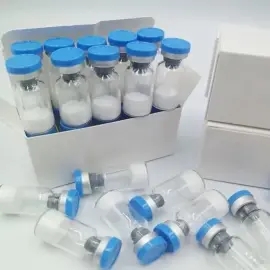Should the state of infusion be monitored? The ban is even stricter
-
Last Update: 2018-03-21
-
Source: Internet
-
Author: User
Search more information of high quality chemicals, good prices and reliable suppliers, visit
www.echemi.com
[China Pharmaceutical network industry trends] recently, Zhang guogang, member of the National Committee of the Chinese people's Political Consultative Conference, vice chairman of the Hunan Provincial Committee of the agricultural labor party, and vice president of Xiangya Hospital of Central South University, put forward a new proposal for limiting infusion - to establish a hospital intravenous infusion network system and big data monitoring platform, so as to monitor the infusion situation nationwide In my impression, when I was a child, I had to take medicine once I had a cold, and I had to go to the hospital for infusion once I had a fever Because there is no absorption process, intravenous infusion plays a very fast role, so the effect of fever reduction is also very obvious However, in recent years, the public opinion that "transfusion equals chronic suicide, and transfusion is prohibited in the United States" seems to be in constant turmoil Parents will also have doubts and concerns about the excessive medical treatment of pediatric common disease abuse of antibacterial drugs, especially the form of transfusion, which has also become the target of criticism According to incomplete statistics, the annual infusion volume in China is more than 10 billion bottles, and about 200000 people die of infusion adverse reactions every year Industry insiders believe that compared with the way of administration, intravenous infusion does have risks, but if the reasonable use is acceptable, for example, some patients who are unable to take orally can only take the way of infusion when they are in urgent need of treatment Therefore, the need for "transfusion" should be determined by the clinical manifestations of patients, the characteristics of drugs and the comprehensive judgment of doctors and other factors According to the health and Family Planning Commission, the premise of "no injection" is "oral" Comatose patients can't take it orally, patients with small bowel resection can't take it orally, some drugs can't be taken orally, some diseases need to fight against the clock, some patients or their families refuse to take it orally, which are all indications of injection In order to strengthen the management of infusion, the national health and Family Planning Commission proposed to strengthen the management of intravenous infusion of antibacterial drugs The provincial and municipal health administrative departments began to actively promote and strengthen the management of infusion, and intensively issued special measures to stop infusion in outpatient clinics In recent years, many provinces have also taken various measures to strictly control the use of antibacterial drugs However, from the perspective of the effect of implementation, it is not ideal, and serious over infusion phenomenon is still occurring Reviewing the policy of restricting transfusion over the years, it can be roughly divided into three major restrictions: for the public hospital outpatient restricting transfusion, the village health office, clinic transfusion record system and traditional Chinese medicine injection are limited According to Zhang guogang's new suggestion on limiting transfusion, a network system and big data monitoring platform were established to monitor the transfusion status in China Zhang guogang also pointed out that "the punishment of unreasonable intravenous infusion is not enough, medical insurance, medical treatment, doctors, and three medical linkage." If it's not reasonable, Medicare can do something about it, and I'll stop paying " If this measure is implemented, it can be said to be a killer It is reported that there are areas in Hunan Province in the pilot vein infusion monitoring and early warning work In 2017, Hunan Province established the infusion safety evaluation center, led by Xiangya Hospital of Central South Hospital, and ten general hospitals carried out the monitoring and early warning work of intravenous infusion, which is a trinity of medicine, medicine and nursing, so as to correct the phenomenon of excessive infusion It is understood that the work of the safety infusion early warning and monitoring system needs doctors, pharmacists and nurses to monitor the whole process, so that patients can reasonably infusion The author thinks that maybe under the promotion of the safety infusion early warning and monitoring system, the phenomenon of excessive infusion in China can be controlled to a certain extent, so that the tragedy can be reduced.
This article is an English version of an article which is originally in the Chinese language on echemi.com and is provided for information purposes only.
This website makes no representation or warranty of any kind, either expressed or implied, as to the accuracy, completeness ownership or reliability of
the article or any translations thereof. If you have any concerns or complaints relating to the article, please send an email, providing a detailed
description of the concern or complaint, to
service@echemi.com. A staff member will contact you within 5 working days. Once verified, infringing content
will be removed immediately.







